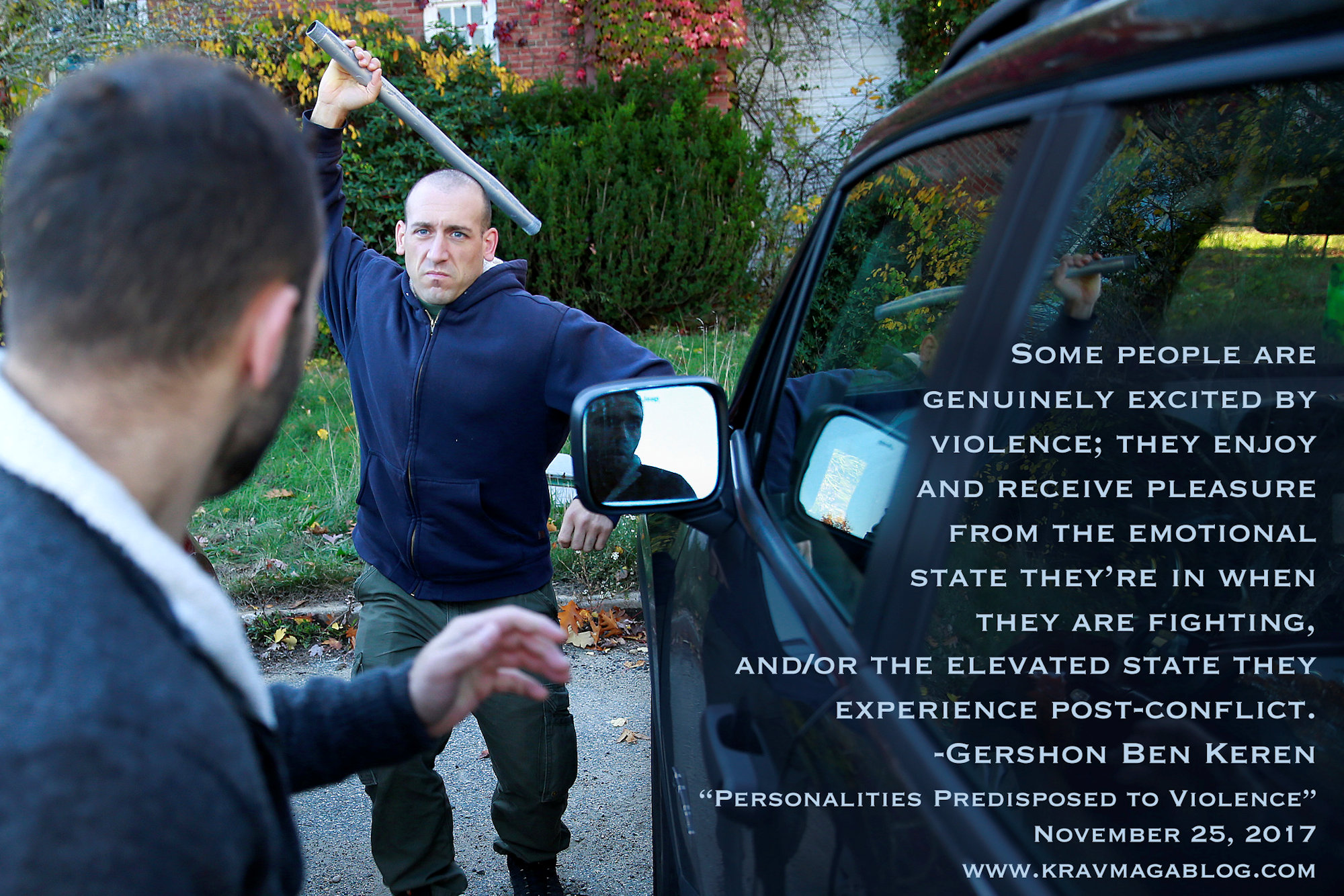The motivations and reasons for violence are often many-layered. At the lowest – and deepest -layer/level, violence is borne out of shame. Shame, as a form of trauma, is a reaction/response, that comes out of being forced to deal with an emotionally challenging and demanding situation, in which the person involved wasn’t able to exert any control over it; it was disempowering and humiliating, even if nobody witnessed the individual going through it – it’s enough that they knew, and they weren’t able to do anything about it etc. A child who is sexually abused is likely to suffer shame, throughout their life, concerning their inability to prevent such abuse from happening, even if when older they “rationally” understand, that they couldn’t have been expected to have control or influence in such a situation. It would be wrong to assume that in every case, this shame, will result in acts of anger, aggression, and violence. However, when a victim of abuse does commit physically violent acts, it is likely that this sense of shame, is one of the underlying causes.
We can feel disempowered and humiliated, over trivial events also. If somebody cuts us off in traffic, and we become emotional because of it, this inability to exert control in the situation, whilst in an emotional state, may lead us to feel disrespected, which in turn may lead to feelings of inadequacy and shame. Most people are able to write off, and forget about these incidents quickly and easily, but some people are unable to do so, and see such examples of disrespect as reflecting a larger attitude towards them e.g. each new incident is added to the previous one, until society as a whole is seen as disrespecting them. Such individuals may use “random” acts of violence, as a means of demonstrating to society at large, that it can’t disrespect and take advantage of them, etc.
In this article, I want to go one layer up, and instead of looking at these root/base causes of violence (shame, and guilt – guilt being a “private” form of shame), look at some of the personality types of those who are predisposed towards engaging in violence. By understanding how such individuals think, behave, and operate, we may better be able to avoid having to physically deal with them (even if this means our ego taking a hit – and most avoidance strategies involve this in some capacity).
Survival/Fear/Panic/Pain – I once had the privilege of having a Norwegian Elkhound. He was a great dog, but he didn’t have a “soft” mouth like a Retriever or a Labrador. When he bit, he bit hard, that was just the way of his breed. Because of this, I was instructed that he had to learn bite control, because if he was surprised by getting his tail caught, or having his paw stepped on, he would probably react by biting (this is an instinctive response dogs have when reacting to pain), and if a small child was present/the target, you would want him to release pressure, once he felt he was biting into flesh. On several occasions he bit people, but never applied any pressure – I’m not going to say it wasn’t scary at times, because it was, but he never injured or left a mark on anyone.
Some people though, haven’t learnt to control their “bite reflex”, and when they experience pain, fear, or even physical discomfort – such as being too hot – lash out at those around them; whom they may perceive to be the cause of their pain. Next time you bump into somebody, step on their toes, or in some other way cause them discomfort, understand that they may react violently towards you – their bite control may not have been educated enough, and they may not know how to stop themselves.
Some people are genuinely excited by violence; they enjoy and receive pleasure from the emotional state they’re in when they are fighting, and/or the elevated state they experience post-conflict. There are those people who want it to kick-off, and they’re not always the people you would think. Many of those involved in football hooliganism in the UK, have families, and good solid jobs. In their roles as employees and fathers, you wouldn’t imagine that they would be capable of inflicting serious injuries upon another person, as well as deriving pleasure and satisfaction, from the act. As the criminologist, Lonnie Athens, would describe it, they are “actors”, who play different roles at different times, and one of their roles, is that of the hooligan – and just like an actor playing different parts, the parts/roles can be very, very different. The clean-cut, family man you’ve just spilt a drink over in a bar, may choose to act, and play a different role to the one that he looks dressed for.
Narcissism and vanity, can cause an individual to act or respond violently towards you. The fact that a narcissist sees themselves as the undisputed king of the world, justifies them to act in any way they want towards you – societal rules and conventions don’t apply, because they see themselves as above them. If they feel you deserve to be punished or attacked, not even because you have done anything to them, then that’s a good enough reason (they don’t need to explain it to themselves or anyone else). Although for all intents and purposes, these types of violent outbursts, resemble those of psychopaths/sociopaths (or to use the correct term, as stated in the DSM, those individuals suffering from an anti-personality disorder), the difference is that with a narcissist, the assault is emotionally driven, rather than occurring with an absence of emotion. If you don’t “get” that a narcissist needs to be treated in a certain way, or that you are a “lesser” being than they are, you will be heading for conflict. If you aren’t sure if you are dealing with a narcissist, ask them if there might be a better way for them to handle/approach the conflict. If they tell that it couldn’t be handled better, and nobody could handle it better than they are, etc. you know who you’re dealing with.
Some individuals have a sense of Existential Honor; that if they fail to stick up for who they are, to settle for less respect than they feel they deserve, the sense of who they are dies. This idea of honor is clearly built on previous feelings of shame, however it is more aggressive and demanding, than simply seeking to avoid shame and humiliation – it is pre-emptive in nature, rather than responsive. The idea of honor is something that is presented, and any challenges to it searched for i.e. the individual is actively looking to be disrespected, and will fit/alter any interaction they have, to be one in which their honor is challenged e.g. an offhand look, the way something was said, can be shoe-horned in, to be a challenge/threat, and a matter of disrespect, that needs to be responded to.
Retaliation, for sexual abandonment. When I was a teenager, perhaps the most humiliating experience I could imagine, was to be publicly ridiculed – in some way, shape or form – by a woman. The ego is a fragile beast, and even at its strongest, is extremely sensitive to belittlement and abandonment. It should come as no surprise, that victims of domestic abuse, are most at risk, when their partner comes to understand that they are thinking of, and getting ready to leave. In fact, it isn’t just the partner who is at risk, it is usually everyone in the abuser’s life, including their children. Those fears, of humiliation and rejection, that we may have worried about as teenagers, can be rooted deeply in some people’s psyches. Most of us grew up, and as adults understand rejection, not as abandonment, but as a choice that another person is free to make, but in some instances this rejection is seen to represent something much deeper, and some people feel a need to respond to this sense of inadequacy, by proving their “manhood” through violence.
There are of course other motivations for violence, including practical gain e.g. a mugger is financially rewarded by acting violently, however even a mugger chooses their particular type of crime for a reason, and mixed in with these may be ideas around abandonment and honor, etc. Violence doesn’t have to make sense to us, in order to make sense to the person committing the crime.
Share:

Gershon Ben Keren
2.8K FollowersGershon Ben Keren, is a criminologist, security consultant and Krav Maga Instructor (5th Degree Black Belt) who completed his instructor training in Israel. He has written three books on Krav Maga and was a 2010 inductee into the Museum of Israeli Martial Arts.
Click here to learn more.

